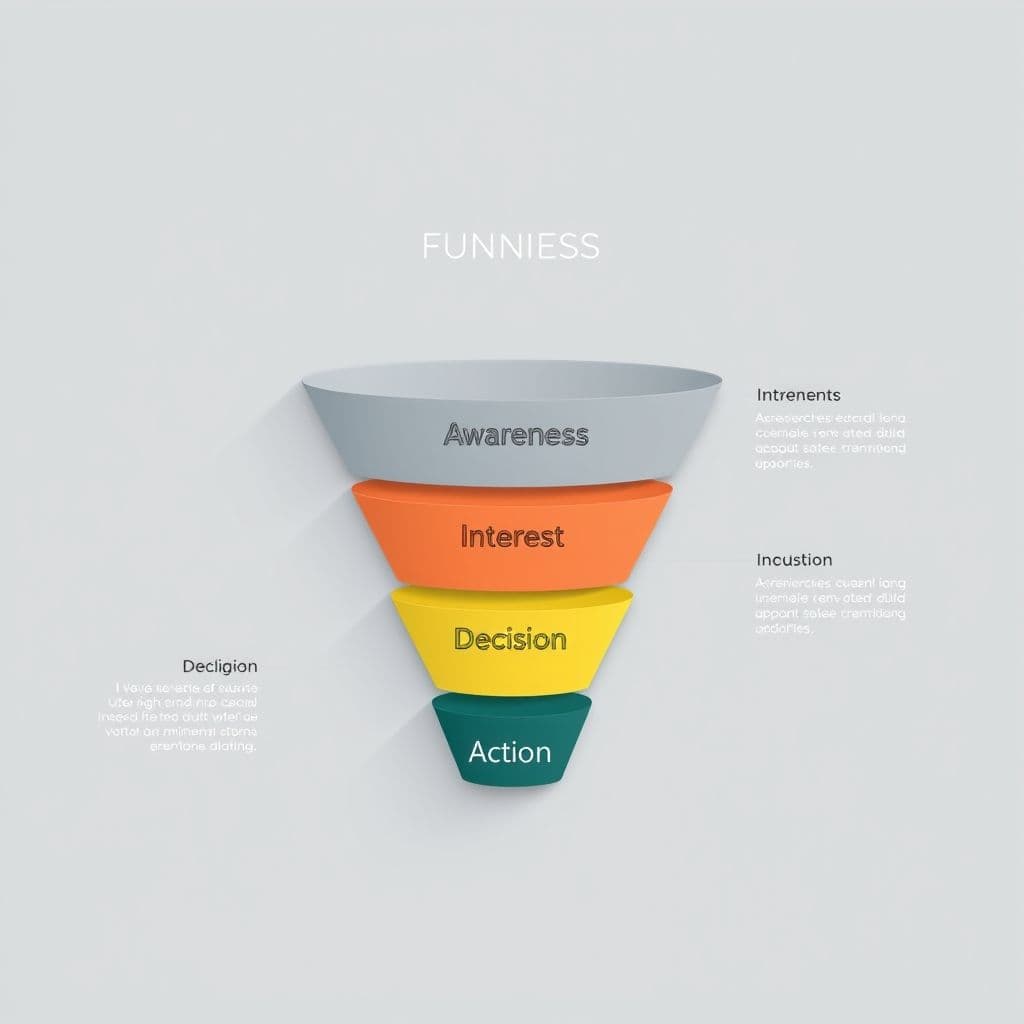Sales Development Mastery: A Step-by-Step Guide to Becoming a Top Performer

Sales development is the backbone of any successful business. Whether you're new to the field or looking to refine your skills, mastering sales development can significantly boost your career. This guide will walk you through the essential steps, from understanding the role to continuously improving your techniques. Let's dive in and unlock your potential as a top-performing sales professional. View original learning path
Step 1: Understand the Sales Development Role
The sales development role is all about generating leads and moving them through the sales funnel. It's a crucial part of the sales process, as it bridges the gap between marketing and sales. Key concepts include understanding the sales funnel, which outlines the stages a lead goes through before becoming a customer, and lead generation, which involves identifying potential customers who might be interested in your product or service.

Step 2: Learn Effective Communication Skills
Effective communication is the cornerstone of sales development. Active listening helps you understand your prospect's needs, while effective speaking ensures you convey your message clearly. Building rapport is equally important, as it establishes trust and makes your interactions more meaningful. Practice these skills daily to become a more persuasive and relatable sales professional.
Step 3: Master Product Knowledge
To sell a product or service, you need to know it inside out. Understanding the product or service allows you to answer questions confidently and address concerns. Identifying unique selling points helps you highlight what sets your offering apart from competitors. Handling objections is another critical skill—anticipate common concerns and prepare responses to overcome them.
Step 4: Develop Prospecting Skills
Prospecting is about finding and qualifying potential customers. Start by identifying your target market—who are the people or businesses most likely to benefit from your product? Lead research involves gathering information about these prospects to tailor your approach. Cold calling, while challenging, is a valuable skill for initiating conversations and generating interest.
✨ Build your personalized learning path in seconds with AI
Try SkillAI for Free →
Step 5: Learn Effective Sales Techniques
Qualifying leads ensures you focus your efforts on prospects with the highest potential. Creating compelling sales presentations helps you showcase your product's value. Negotiation skills are essential for closing deals—practice finding win-win solutions that satisfy both you and the customer.
Step 6: Understand CRM Systems
Customer Relationship Management (CRM) systems are vital tools for managing interactions with prospects and customers. They help with data management, ensuring you keep track of all relevant information. Sales pipeline tracking allows you to monitor where each lead is in the sales process, helping you prioritize your efforts.
Step 7: Practice and Refine Sales Techniques
Role-playing is a great way to practice different sales scenarios and refine your techniques. Handling rejections gracefully is part of the job—learn from each no to improve your approach. Continuous learning keeps you updated with the latest sales strategies and industry trends.
Step 8: Develop Time Management Skills
Prioritization helps you focus on high-value tasks that drive results. An efficient workflow ensures you make the most of your time. Goal setting keeps you motivated and provides a clear direction for your efforts.
Step 9: Build a Professional Network
Networking events and online platforms are excellent opportunities to connect with industry peers and potential clients. Building relationships within your network can lead to referrals and collaborations that boost your sales success.

Step 10: Continuously Improve and Adapt
Analyzing sales metrics helps you identify what's working and what needs improvement. Staying updated with industry trends ensures you remain competitive. Seeking feedback from peers and mentors provides valuable insights for growth.
Conclusion
Mastering sales development is a journey that requires dedication, practice, and continuous learning. By following these steps, you'll build a strong foundation and develop the skills needed to excel in this dynamic field. Remember, every interaction is an opportunity to learn and grow.
Ready to take your sales development skills to the next level? Start implementing these steps today and share your progress in the comments!
🚀 Create Your Free Learning PathFrequently Asked Questions
- How long does it take to master sales development?
- The time it takes to master sales development varies depending on your dedication and practice. Consistent effort and continuous learning can lead to significant improvement within a few months.
- What are common mistakes beginners make in sales development?
- Common mistakes include not listening actively to prospects, lacking product knowledge, and failing to follow up. Avoiding these pitfalls and focusing on building relationships can set you on the path to success.





